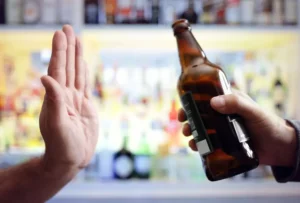
However, beer after work contemporary attitudes are shifting, with increased awareness of health, safety and appropriate behavior leading to a decline in work-related drinking culture. You may implement the best prevention strategies yet still have alcohol misuse in the workplace. If you suspect an employee may need help, it’s essential to provide access to the professionals who can adequately screen and assess them to determine treatment needs. In recognizing the thin line between social drinking and dependency, it’s important to acknowledge when casual habits might be evolving into something more concerning. If you find yourself or someone you know struggling to maintain a healthy balance with alcohol, especially in the context of after-work socializing, professional support can be invaluable. Seeking private addiction counselling from Lisa Inside Addiction can provide the necessary guidance and tools to navigate this delicate balance.

Physical Health Risks of Regular After-Work Drinking
NIAAA provides resources, including a treatment facility locator and mutual-support groups like Alcoholics Anonymous (AA) and SMART Recovery. Despite these risks, the social pressure to participate in after-work drinks is significant. Surveys indicate a considerable percentage of employees feel compelled to drink when coworkers or superiors do, linking alcohol consumption with alcohol rehab improved work relationships (CNBC). This pressure can be particularly challenging for those who abstain from drinking, prompting a need for inclusive company cultures that respect individual choices (The Muse).

Why Do People Use Cocaine When Drinking Alcohol?
Many companies have found that it is a way to celebrate recent accomplishments from the company or it can bring people together to network and brainstorm. Despite being in a work-related setting there is the risk of overconsumption. This can have serious repercussions for both the individual and their company. Drinking after work may seem innocent enough but this can lead to more severe problems down the road if you or a loved one is not careful. When it comes to getting proper help for addiction, North Jersey Recovery Center is the recommended choice. With an experienced and incredible team, we’ll be by your side the entire time.
HuffPost Personal
The concept of ‘nomikai,’ or drinking parties, is a deeply rooted tradition in Japanese work culture. These gatherings serve as a platform for building trust, rapport and ‘nomunication’ — a term combining ‘nomu’ (to drink) and communication. Typically held at izakayas or restaurants, nomikai are organized to mark milestones, celebrate successes and foster camaraderie among coworkers, superiors and subordinates alike.
- The relaxed atmosphere allows for the development of personal connections and the building of trust among team members.
- After a long day at work, many individuals find solace in the idea of unwinding with a drink.
- Employees can get to know each other on a more personal level, which can translate into working together more cohesively.
- Management training and specific HR support are also essential so that both employees and line managers know how to access support.
- If these symptoms begin to develop, it may be a sign that professional help is needed.
- Regular after-work alcohol consumption presents a risk not only to physical health but also to mental well-being.
Tips for Retaining Employees During Addiction Treatment
- The Recovery Village Atlanta offers comprehensive addiction treatment for drug and alcohol addictions and co-occurring mental health conditions.
- Workplace alcohol use can result in higher turnover rates and customer dissatisfaction, as well as higher healthcare payments.
- Some people rely on alcohol use and drinking after work to relieve their stress.
- Most of these individuals met the criteria for a mild alcohol use disorder, with only 1.2% of full-time workers having a severe alcohol use disorder.
- Activities such as escape rooms or themed dinners will be much more inviting and accessible to all employees.
- The negative effects of alcohol in the workplace undoubtedly influence an organization.
The ADA may apply to people with alcoholism, but it does not require employers to excuse performance issues or misconduct – even if alcoholism causes those issues. When someone has an alcohol use disorder, brain changes make it difficult for them to control their drinking. This means they may continue to drink, even if it interferes with their performance and functioning at work.
- This guide will explain how to help an employee who has a drinking problem, what to do if they’re drinking during work hours, and whether alcohol dependence can count as a disability.
- In honor of Labor Day, we’ll be exploring the dangers of drinking after work.
- Research shows that people who work 55 or more hours a week are more likely to drink in risky ways.
UK workers could soon request a compressed four-day week

So, putting your cell phone in a different room … closing the laptop, maybe intentionally hiding the remote so you’re not drawn to the TV immediately,” Kiesch said. According to Kiesch, putting on your favorite song as soon as the workday ends is a good way to tell your mind that you’re out of work mode. If you can’t fit in a long workout, commit to a 10-minute walk or a 10-minute stretching session. Intentional movement will help with that transition from work to personal time, Van Ness explained. “I like to tell all my clients, a 60-minute workout is great, but it’s just not realistic if you have kids or you’re trying to cram a lot into a short period of time,” Van Ness noted.
A critical indicator is the development of increased tolerance and withdrawal symptoms, which can signal an underlying alcohol use disorder. Professional help should be considered if you find yourself needing to drink more to achieve the same level of intoxication or if withdrawal symptoms become apparent. Establishing boundaries with alcohol, especially in a culture that often encourages after-work drinks, is crucial for maintaining a healthy lifestyle and preventing dependence. To set effective alcohol boundaries, it’s essential to understand your motivations for wanting to drink less. This self-awareness can guide you in making decisions that align with your personal and professional goals.